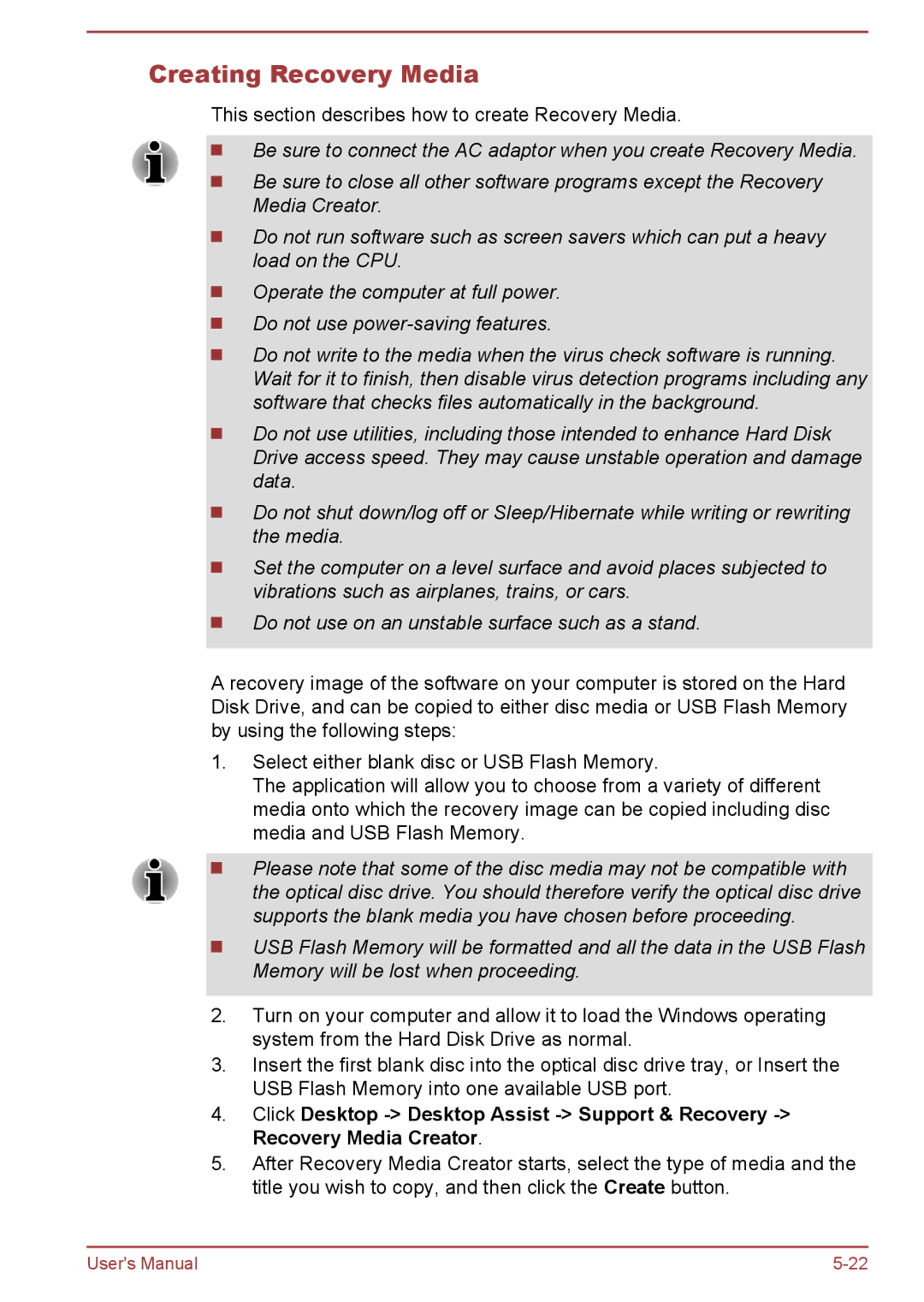
Creating Recovery Media
This section describes how to create Recovery Media.
Be sure to connect the AC adaptor when you create Recovery Media.
Be sure to close all other software programs except the Recovery Media Creator.
Do not run software such as screen savers which can put a heavy load on the CPU.
Operate the computer at full power. Do not use
Do not write to the media when the virus check software is running. Wait for it to finish, then disable virus detection programs including any software that checks files automatically in the background.
Do not use utilities, including those intended to enhance Hard Disk Drive access speed. They may cause unstable operation and damage data.
Do not shut down/log off or Sleep/Hibernate while writing or rewriting the media.
Set the computer on a level surface and avoid places subjected to vibrations such as airplanes, trains, or cars.
Do not use on an unstable surface such as a stand.
A recovery image of the software on your computer is stored on the Hard Disk Drive, and can be copied to either disc media or USB Flash Memory by using the following steps:
1.Select either blank disc or USB Flash Memory.
The application will allow you to choose from a variety of different media onto which the recovery image can be copied including disc media and USB Flash Memory.
Please note that some of the disc media may not be compatible with the optical disc drive. You should therefore verify the optical disc drive supports the blank media you have chosen before proceeding.
USB Flash Memory will be formatted and all the data in the USB Flash Memory will be lost when proceeding.
2.Turn on your computer and allow it to load the Windows operating system from the Hard Disk Drive as normal.
3.Insert the first blank disc into the optical disc drive tray, or Insert the USB Flash Memory into one available USB port.
4.Click Desktop
5.After Recovery Media Creator starts, select the type of media and the title you wish to copy, and then click the Create button.
User's Manual |
